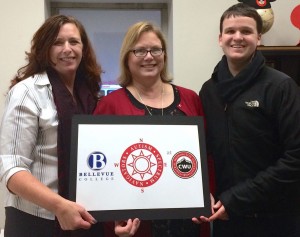
As our culture has begun to gain a better understanding of the autism spectrum, educational institutions have come to realize the importance of serving this population beyond the lip service of an awareness month. Where institutions can stumble however, is in treating autism like something that needs fixing as opposed to something that needs understanding and navigating.
Bellevue College initiated a pilot Autism Spectrum Navigators (ASN) program in 2010 to see if the “roller coaster” that many autistic students experience in higher ed could be leveled out. The pilot was successful. So successful in fact, that it is now being replicated at Central Washington University in Ellensburg, Washington.
“As a greater number of autistic students enter higher education each year, it is imperative that institutions are prepared with programs that work, and that do not place undue financial burdens on students and families,” said Sara Gardner, ASN program director and instructor. “We have over 200 autistic students on the Bellevue College campus, and we know how to serve them. It just makes sense for BC to share this knowledge with other institutions so that other students can also benefit.”
BC’s ASN program supports autistic students in accessing college programs and services, including communication with instructors. Students in the program have access to a network of support, including meetings each week with trained peer mentors and participation in group classes and discussions. Other program elements include parent training and support, faculty and staff training and support and community engagement and education.
The success of the ASN program is rooted in the approach: the program is designed on the social and diversity models of disability, and as such, provides access for students and supports them in discovering their strengths, rather than trying to “fix” them to fit in with typical peers.
BC also works to ensure the ASN program is accessible to everyone. BC students pay only for the cohort class they take each quarter. This results in a modest $200–$300 tuition fee per quarter for BC ASN students, rather than the $1,200–$8,000 quarterly fee other institutions charge for similar services.
“With this partnership (with CWU), we will be able to share knowledge to continually improve upon the model and grow with our students,” said Gardner. “We have the opportunity to truly create best practices across the country for autistic college students.”
Gardner says interest in the BC ASN program is growing, and is currently in conversation with half a dozen other schools interested in learning about how the program could be implemented at their respective institutions, with requests coming in regularly from across the country.
Related links:
– by Evan Epstein
Last Updated October 3, 2016
